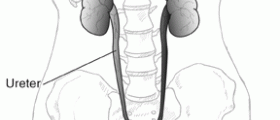
Human kidneys are responsible for procession of about 200l of blood and production of 2l of urine every day of our life. Filtering the blood, kidneys remove metabolic waste and excess water and because of that, people are able to use different types of food and drinks.
Kidney Functions
Kidney filtration starts at the glomeruli, where capillaries deliver the blood. Red blood cells, proteins and some other large molecules stay in the capillaries, while waste products, some useful substances and fluid get filtered and collected on Bowman’s capsule. Filtration continues in the tubules, which cells are able to reabsorb the water and useful chemicals and, at the same time, secrete waste products into the tubules.
Another extremely important role of the kidneys is maintenance of normal levels of minerals in the blood, especially sodium, potassium and calcium. Human kidneys also produce hormones. Renin, as one of the hormones produced in the kidneys is responsible for regulation of blood volume and blood pressure. Eryhtropoetin (also known as EPO) is also synthesized in the kidneys and its role is to stimulate the bone marrow for production of red blood cells (RBC). Yet another of kidney hormones is calcitriol. This is actually the active form of vitamin D or 1,25 dihidroxy-vitamin D, needed to regulate absorption of calcium and phosphorus and to promote creation of strong bones.
Chronic Kidney Disease
Kidney (or renal, since this is Latin word for the kidneys) failure is disease characterized by gradual and in most cases permanent loss of kidney function. This condition usually develops over months and years, progressing and causing more and more kidney problems to the patient. According to the severity of the condition and consequent rate of glomerular filtration (GFR glomerular filtration rate), doctors differentiate 5 stages of chronic kidney disease.
Stage 1 of the chronic kidney disease is usually characterized by filtration at normal or even increased rate (90ml/min.1.73m2 or more). Patients diagnosed to be at stage 2 of the disease experience mild decrease in kidney function and their GFR is about 60 to 89ml/min. Stage 3 is known to cause moderate decrease of kidney function, while stage 4 is usually seen to severely compromise functioning of the kidneys. GFR is dropping from 30 to 59 in stage 3 to 15 to 29 in stage 4. Stage 5 of chronic kidney disease is associated with rate of glomerular filtration less than 15ml/min and these patients require dialysis.
Kidney Failure
Kidney failure or end-stage kidney disease is another name for stage 5 of the chronic kidney disease. Anemia, hypertension, acidosis, cholesterol disorders and bone disease are characteristic for almost all patients suffering from chronic kidney disease. However, patients diagnosed to be at stage 5 of this disease may have additional health problems, associated with dangerous buildup of waste products, water and some toxic substances. Dialysis or transplantation are only treatment options for these patients in order to keep them alive.

















Your thoughts on this
Loading...